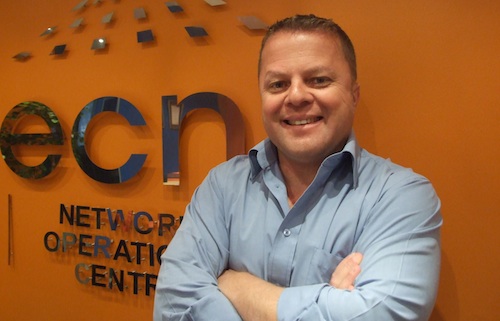
ECN Telecommunications is in talks with a number of large international mobile operators with a view to setting up a cellular carrier in SA that will compete directly with incumbents Vodacom, MTN and Cell C.
ECN CEO John Holdsworth says the company is considering selling a majority stake to the right foreign partner. He confirms that talks are already underway with foreign operators that have expressed an interest in entering the SA market. He declines to name the operators.
“We are prepared to sell a majority stake to the right partner, meaning 50% plus one share. That’s not to say we will, but that’s what’s on the table.”
ECN’s principal shareholders are the black-led LA Group and Oakbrook Investments.
Holdsworth declines to say how much ECN plans to invest in its mobile network. “I can’t disclose that yet but there is a business plan on the table and the numbers are known to the parties involved in the negotiations.”
The company has been at the forefront of the fight to bring down the fees the mobile operators charge other network operators to carry calls on their networks. Lowering these interconnection fees will assist it in getting its mobile business off the ground.
Holdsworth says ECN is in negotiations with Vodacom and MTN to conclude a roaming agreement that would give its subscribers nationwide coverage from day one. Cell C already has a similar arrangement with Vodacom.
It also plans to build its own infrastructure. Holdsworth says there is a unique opportunity for new operators to gain a competitive advantage by building next-generation networks based on Long-Term Evolution, or LTE, the successor to the wideband CDMA networks used by Vodacom and MTN.
He says ECN is also interested in wideband CDMA and WiMax technologies.
ECN will bid for any radio frequency spectrum that the Independent Communications Authority of SA (Icasa) makes available, Holdsworth says. But he says he is particularly keen for spectrum in 900MHz and 1 800MHz — the bands traditionally used to provide cellular telephony.
The company’s plans are contingent, however, on a reduction in interconnection fees. These fees, which are set at R1,25/minute in peak times, have had a chilling effect on competition, Holdsworth says.
He expects interconnection fees to fall to 60c/minute next year, and to 30c/minute down the line. He also expects an asymmetric interconnect regime to be introduced that favours smaller players — and he includes Cell C as one of the companies that should benefit. The idea is that smaller players will pay less than the bigger operators to carry calls between networks.
Asymmetry, he says, will facilitate the entry of new mobile players. He believes the SA market can sustain between six and eight mobile network operators, provided the right regulatory environment is established.
ECN will focus initially on the prepaid market but will also offer contract and data packages later. The prepaid market is attractive because risk is lower and there isn’t a need to subsidise handsets. Lower interconnect fees would allow the company to compete effectively on price with the incumbent operators.
“We want to compete aggressively on price,” Holdsworth says. “The only way to win business from the incumbents is to challenge their price and value proposition.”
ECN wants to become a full-service network operator and has no interest in the mobile virtual network operator model, pioneered in SA by Virgin Mobile. “ECN is not only a service provider,” Holdsworth says.
Indeed, he says ECN already has its own national MPLS, or multi-protocol label switching network. That network consists of national fibre links it leases from Telkom, as well as points of presence in seven cities around the country. It has STM-4 links (622Mbit/s) into four of these points of presence and interconnects with all the big network operators. — Duncan McLeod, TechCentral




